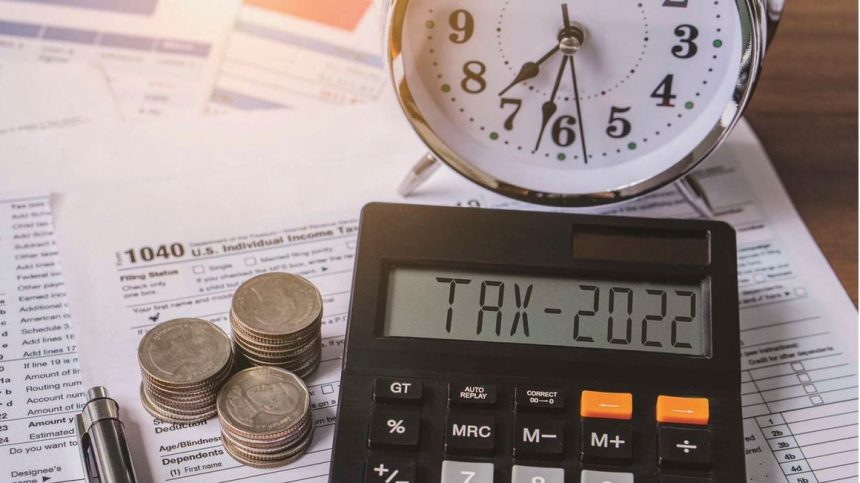Kenya has reported the slowest growth in collections from value-added tax (VAT) since it started enforcing International Monetary Fund-led reforms a decade ago on the back of elevated inflation which has squeezed salaries and curtailed new private-sector investments.
The growth in VAT, charged on consumption of goods and services along the supply chain, for the financial year ended June 2023 is the most sluggish in 10 years, excluding the pandemic year when the levy was trimmed, according to the latest official statistics.
The provisional data show the Kenya Revenue Authority (KRA) increased the collections by 5.23 percent, or Sh27.34 billion, in the review period to Sh550.04 billion.
That was a sharp retreat from the previous year ended June 2022 when the VAT receipts grew Sh112.34 billion or 27.35 percent despite the gradual rollout of the electronic tax invoice management system (eTIMs) last financial year.
Analysts attributed the slowest growth in VAT collections since Kenya started to gradually enforce the VAT Act of 2013, fronted by the IMF, largely to the cost of living crisis which has not only eroded earnings but also hurt job opportunities.
“The slowdown in revenue from VAT is largely attributable to progressive decline in disposable income of Kenyans. This is primarily because of the high cost of living due to inflation,” Stephen Waweru, a senior manager for tax services at consultancy and audit firm KPMG, said.
“Equally, most businesses are scaling down their operations or even relocating due to the high cost of doing business in Kenya thus escalating the level of unemployment in Kenya.”
Inflation in the review year ended June 2023 averaged 8.78 percent compared with 6.29 percent a year earlier, official data show, while the shilling lost 19.26 percent of its value against the US dollar.
VAT revenue receipts have nearly tripled since the enforcement of the overhauled VAT Act from September 2013.
The data show VAT has surged from Sh184.92 billion in the financial year ended June 2013 to Sh550.04 billion to the one ended June 2023, a 197.67 percent jump.
The KRA has banked on the rollout of Internet-enabled electronic tax registers, which give it a real-time view of sales, to make VAT the biggest driver of new taxes.
“As it is now if there’s one tax head that every single person is paying is VAT. Even to a small child on products which are not exempt [VAT is applicable]. Everybody is incurring VAT,” KRA acting commissioner-general Rispah Simiyu said in a past engagement.
“Why then shouldn’t it be the tax head that performs the best? That remains a challenge to us… and it is a challenge that we are taking graciously.”
The inflationary pressures, as a result of high energy and food costs due to the Russia-Ukraine war, has largely been blamed for reduced demand for goods and services, leading to reduced profitability and ultimately constraining new investments.
“Ultimately, this [inflation] has direct correlation with the spending power of Kenyan which has a negative impact on revenue collectible from consumption taxes such as VAT and Excise Duty,” Mr Waweru said.
“We do not foresee any changes [in VAT growth patterns] in the near future unless the government implements stringent fiscal policies to spur economic growth.”
Excise duty — which is largely applied on goods such as beer, spirits, cigarettes, mineral water, juice, cosmetics, cars, airtime and internet use— grew 4.92 percent to Sh264.51 billion. This was the slowest increase since 2018, excluding the pandemic year.
The reduced consumer demand for goods and services prompted companies to significantly cut output in the second half of the review year, according to the latest Stanbic Kenya Purchasing Managers Index (PMI) survey.
This slowed the creation of employment opportunities, the report, based on feedback from about 400 corporate managers, suggests.
To rein inflation, the central bank has raised benchmark interest rates from 7.00 percent to 10.5 percent since May 2022.
Increasing the key lending rate makes borrowing more expensive as banks use it a base onto which they load their margins and risk profile of individuals when pricing loans.
The resultant high cost of borrowing is expected to prompt consumers to cut or postpone expenditure on non-essential goods and services, thus helping rein in elevated inflationary pressures from the demand side.
“Inflation seems set to stay stickily high due to Kenyan businesses facing intractable input, output and wage price pressures,” Christopher Legilisho, an economist with South African-based Standard Bank, the parent firm of Stanbic Bank, wrote in the PMI report on August 3.




